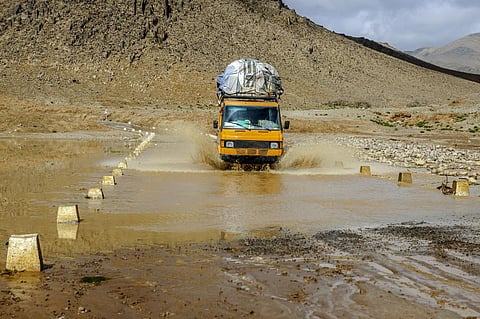

Over the last year, 39 per cent of businesses in Africa were affected by floods and 23 per cent by drought, according to a new report.
The most impactful in terms of concerns about the physical risks to African companies was drought and water stress, the British International Investment’s Emerging Economies Climate Report 2022 highlighted.
Flooding impacted a wide range of companies: From electric utilities firms, agricultural companies, banks to real estate businesses.
The survey covered senior executives working across a portfolio of companies and funds in Africa to understand the impact of climate change on businesses.
Africa, which is the least responsible for causing climate change, is among the most vulnerable to climate impacts, studies have shown.
In fact, the 10 most climate-vulnerable countries in the world are all African. These are Niger, Somalia, Guinea-Bissau, Chad, Sudan, Liberia, Mali, the Democratic Republic of Congo, Eritrea and Uganda.
Drought was the second-most reported physical climate event, with agricultural companies the most affected.
Zebu Investments, a firm that invests in the food and agriculture sector across Africa, reported that drought had a significant impact on its portfolio companies.
In central Africa, it affected maize production of a business it invests in, while a pig farm has seen water shortages, damaging crops grown for feed, the analysts wrote.
As much as 82 per cent of the respondents said their business growth would be impacted by climate change, while 21 per cent felt that climate change would substantially impact their business growth.
Respondents in African countries were found to be more concerned about the problem than their Asian counterparts.
In Africa, 58 per cent of respondents said climate change could impact their organisation’s viability, compared with 54 per cent of respondents in Asia, according to the report.
The survey also demonstrated that climate change had affected their capital expenditure decisions. “These organisations are making capital expenditure decisions to improve resilience to physical climate change events, as well as helping to transition to a low-carbon economy,” the analysts wrote.
In Africa, two of the agricultural firms interviewed, Zebu Investments and Sahel Capital, had made capital expenditure investments to adapt to climate change.
Zebu Investments built two dams to allow them to irrigate crops to counter lower maize yields due to worsening drought in Cameroon, the report mentioned.
Sahel Capital, a fund manager that operates across sub-Saharan Africa, invested in a flood defence system to adapt to climate risk.
The respondents wanted more support in helping address the challenges brought by the changing climate, the survey established.
Respondents agreed that better investment is needed to help businesses in emerging economies improve resilience to physical climate change and transition to a low-carbon economy.